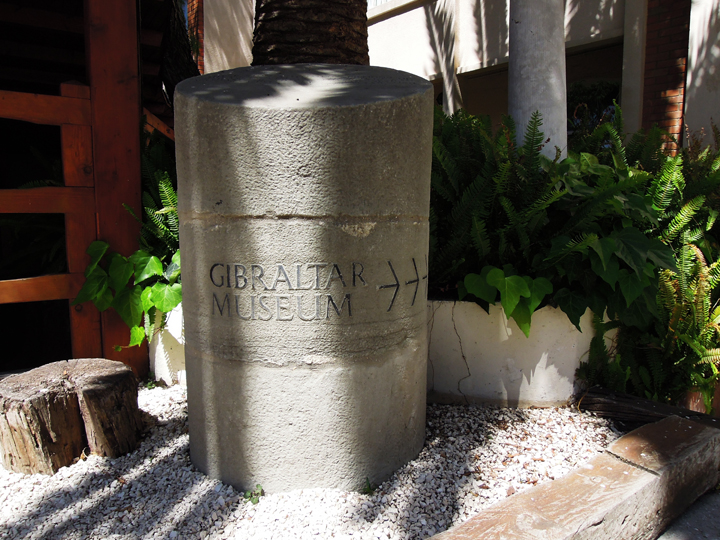Jun 25 - Calpe Conference 2014 Line Up Unveils Impressive Speakers
 This year’s Calpe Conference, the 18th in the series, will take place between the 18th and 21st September at the John Mackintosh Hall. The conference will bring together top specialists in the study of early humans and experts in the field of World Heritage. The conference is timely given the forthcoming nomination of the Gibraltar Neanderthal caves (including Gorham’s Cave) and landscape for World Heritage Status.
This year’s Calpe Conference, the 18th in the series, will take place between the 18th and 21st September at the John Mackintosh Hall. The conference will bring together top specialists in the study of early humans and experts in the field of World Heritage. The conference is timely given the forthcoming nomination of the Gibraltar Neanderthal caves (including Gorham’s Cave) and landscape for World Heritage Status.
Its aim is to discuss the universality of the early human story and to debate its representation on the World Heritage List. This story is a truly universal one, staged at a time when national boundaries did not exist, and is underrepresented on the List and the inclusion of sites which tell this story will help to balance it.
The list of speakers is impressive. The opening lecture will be given by Professor Don Johanson, one of the discoverers of the famous Australopithecus skeleton which became popularly known as “Lucy” in 1974. He is Virginia M. Ullman Chair in Human Origins, Professor of the School of Human Evolution and Social Change, and Founding Director of the Institute of Human Origins at Arizona State University.
The programme is divided into three sessions. The first is on the subject of World Heritage and the opening lecture will be delivered by Professor Minja Yang who is President of the Raymond Lemaire International Centre for Conservation (RLICC), Leuven, Belgium. Professor Yang was formerly Deputy Director of the UNESCO World Heritage Centre in Paris. Established by Professor Raymond Lemaire in 1976, at the initiative of the International Council of Monuments and Sites (ICOMOS), within the framework of the College of Europe in Bruges, the RLICC is now part of the advanced Master programme of the Faculty of Engineering of the Katholieke Universiteit Leuven. The RLICC has more than 35 years of experience in training, research and consulting in the field of the preservation of the built heritage.
Also speaking in this session is Dr Christopher Young, who is the former Head of International Advice at English Heritage with a wealth of experience of the World Heritage Convention. Professor Robin Dennell of Sheffield University is a leading Palaeolithic archaeologist, who has many years of experience of working in the field in different parts of Asia and has advised the World Heritage Centre in its Human Evolution: Adaptations, Dispersals Developments (HEADS) programme. The first session ends with Professor John Hawks of the University of Wisconsin-Madison. Professor Hawks is a widely known advocate of open science. His blog (http://johnhawks.net) reaches a global audience with more than 150,000 unique visitors each month. He is working to innovate new approaches to biology education and science literacy both at the undergraduate and high school levels and is a leader in the development of ways that open access and public engagement can shape the future of science. In January 2014 he commenced an exciting and innovative
Professor Hawks is a widely massive open online course entitled ‘Human Evolution: Past and Present’.
The second day is dedicated to case studies and commences with three sites that are currently on the World Heritage List. Professor Mina Weinstein Evron is Head of the Zinman Institute of Archaeology and the Laboratory of Palynology at the University of Haifa in Israel. Professor Weinstein Evron was an instrumental figure in the inscription of the Mount Carmel caves on the World Heritage List in 2012. She will be followed by Dr Anthony Pace who is Superintendent of Heritage of the Government of Malta. Malta has several World Heritage Sites, including its impressive Bronze Age temples, and Dr Pace will analyse the competitive advantage, at both national and international levels, of World Heritage inscription. The third speaker, Dr Juan José Negro, is the Director of the Biological Station at Doñana, a park which is a World Heritage Site under natural criteria. Dr Negro will look at the impact of human activity on the park, which dates back to the Neolithic.
The ethnographic dimension, specifically looking at Australian Aboriginal and indigenous South American peoples will take up the second part of the session.
Dr Mark Dugay-Grist, Australian Consultant Archaeologist with aboriginal roots, Can the study of our Ancestors enhance our modern societies?’ Professor Christoph Zollikofer and Dr Marcia Ponce de León of Zurich University will then ask another, highly topical and controversial, question ‘Human remains as cultural heritage: whom do they belong to, and where do they belong?’
The third day is dedicated to Gibraltar, with members of the Gibraltar Museum team speaking about the candidate World Heritage Site and joined by Professor Joaquín Rodríguez Vidal of the University of Huelva and Dr Jordi Rosell of the Catalan Institute of Human Palaeoecology and Social Evolution. Professor Geoff Bailey of the University of York, who is a leader in the field of submerged archaeology, and Miss Sue Davies, Consultant in Cultural Heritage and former Vice Chairperson, United Kingdom National Commission for UNESCO, will also participate in this session. Miss Davies has an intimate knowledge of the work being undertaken in Gibraltar and will close the session with a lecture entitled ‘Neanderthal Rock: Gibraltar on the World Heritage Stage’.
The conference, as in previous years, is free to local residents. For further information please contact the Gibraltar Museum at This email address is being protected from spambots. You need JavaScript enabled to view it. heading the email ‘Calpe 14’, or by calling the Gibraltar Museum reception on 200 74289.






